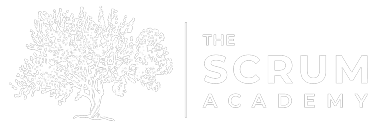
The Eight Hats of a ScrumMaster
I have been working with a colleague to develop a new course for ScrumMasters (and other Agile change agents) and we were talking about possible objectives for this course, who would attend and what is missing from our current offerings that this class could provide. As we discussed these ideas we started to talk about just what is a ScrumMaster and what are they expected to do. In my CSM classes, I use Bernd Schiffer’s “42 Tasks for a ScrumMaster” to explain the concept a ScrumMaster is a full-time job. This is very useful, but does not identify what roles the ScrumMaster plays and my colleague and I had a very interesting dialogue on the various hats the ScrumMaster is expected to wear.
- Visionary – has a specific point-of-view and is passionate about what they see as the future for their team and organization. As a visionary, a ScrumMaster could be an evangelist or an individual who possesses the calm confidence of knowing what they really want.
- Facilitator – while a ScrumMaster must have a point-of-view of vision, when they work with a self-organizing team they must be neutral. When they are acting as the facilitator, they create the space for collaboration and self-organization to occur and refrain from providing content.
- Leader – since the ScrumMaster works in the space of “no authority”, they need to draw followers to them through the power of their ideas, the strength of their conviction and the ability to communicate their vision.
- Mentor – one of the strengths of a ScrumMaster is that they care and respect the people they come into contact with each day. In order to excel as a mentor, a ScrumMaster devotes much of their day building genuine, personal relationships with everyone they interact with.
- Teacher – ScrumMasters need to possess a deep understanding of Scrum, be knowledgable on the current set of Agile variants (XP, Crystal, DSDM, Kanban, Lean for Software, etc.) and provide thoughtful answers on how to apply Scrum outside the lines. I expect a ScrumMaster to be comfortable explaining Scrum in a variety of ways, in a variety of forums, to variety of roles and to a variety of people with different levels of understanding about Scrum and Agile.
- Coach – sometimes people need “an answer” and sometimes people need help finding the solutions to the challenges on their own. A skilled ScrumMaster knows the difference and can regularly create effective coaching conversations which produce actionable results.
- Change Agent – Scrum is much more than a set of activities or practices we do at work. Scrum is about change. As a change agent, the ScrumMaster brings change to all parts of the organization and socializes the impact of change with stakeholders.
- Expert Communicator – Scrum is about having the more interesting conversation, the conversation that we need to have and about fostering a dialogue about how to improve. To support this, the ScrumMaster must model the crucial skills necessary to start and maintain dialogue.
One of the things we noticed in our conversation was this role of ScrumMaster does not exist in organizations today and many of these roles are in conflict with one another. In most businesses today, there is no one person who does all these things. Some people might do some of these activities sporadically but no one does all of them all the time.





